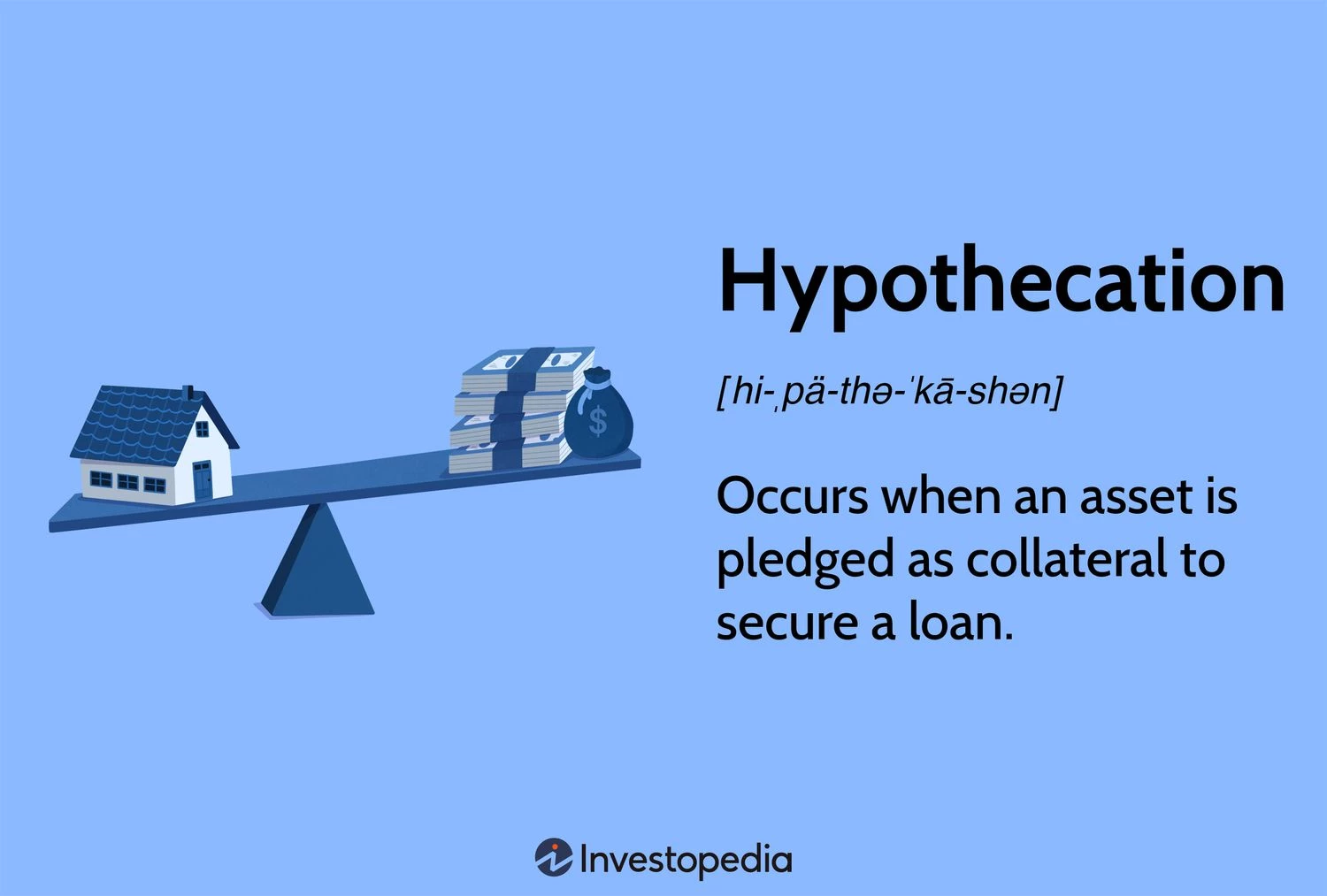Understanding Hypothecation in Finance
Hypothecation is a financial term referring to the practice of pledging an asset as collateral to secure a loan. In this arrangement, the asset’s owner retains title, possession, and ownership rights, including any income generated by the asset. However, the lender reserves the right to seize the asset if the borrower fails to meet the loan terms. It’s important to note that hypothecation differs from a mortgage, lien, or assignment.
Key Points to Remember:
- Hypothecation involves using an asset as collateral for a loan while retaining ownership rights.
- Common in mortgage lending, hypothecation allows lenders to seize collateral if borrowers default.
- Margin lending in brokerage accounts is another scenario where hypothecation is prevalent in trading and investing.
Investopedia / Yurle Villegas
Hypothecation in Mortgage Transactions
Hypothecation commonly occurs in mortgage lending where a property serves as collateral. While the borrower holds ownership of the home, the lender can claim the property in cases of loan default, as seen during the foreclosure crisis.
Auto loans operate similarly, drawing security from the underlying vehicle. Unsecured loans lack this collateral, making hypothecation essential for loan security and potentially lower interest rates for borrowers.
Note:
When default occurs on unsecured loans, lenders may resort to legal action for debt collection.
Application of Hypothecation in Investing
Margin lending in brokerage accounts exemplifies another form of hypothecation prevalent in securities trading. Investors use borrowed funds to leverage their investments, potentially yielding higher profits.
However, margin trading can be risky, with securities subject to sale in case of a margin call that’s unmet by the investor, resulting in amplified losses beyond the initial investment.
Understanding the workings of margin trading and hypothecation is crucial to mitigate potential losses effectively.
Examples Illustrating Hypothecation Agreements
In real estate, hypothecation commonly features in mortgage loans, where properties like rental units secure bank mortgages without affecting rental income. Defaults may prompt property seizure through foreclosure proceedings.
This concept benefits lenders seeking to reduce risk when loaning money and aids borrowers in obtaining loans with favorable terms based on pledged collateral.
Pro Tip:
Communication with lenders during financial difficulties can offer potential solutions to avoid adverse impacts on credit scores during foreclosure.
Hypothecation Perspective in Commercial Real Estate
Commercial real estate hypothecation mirrors residential cases with properties securing loans. In construction loans, alternate collateral may substitute pending property construction, with default risking collateral ownership transfer.
Lenders exercise ownership claim on collateral upon loan default, regardless of the property’s intended future use.
Understanding Rehypothecation
Rehypothecation refers to using hypothecated collateral as collateral for other transactions, typically to access cost advantages or rebates. Proper regulatory permissions are necessary in these practices.
Due to its association with financial crises, rehypothecation practices have declined and are now strictly monitored by regulatory bodies like the Securities and Exchange Commission.
Insight:
Understanding the implications of rehypothecation helps prevent unforeseen risks associated with complex financial transactions.
Comparing Hypothecation and Mortgages
While hypothecation involves pledging assets as loan collateral without relinquishing ownership, mortgages secure loans using property titles transferred to lenders.
Distinctness of Assignment and Hypothecation
Assignment involves contractual rights transfer, whereas hypothecation permits property retention while securing loans.
Exploring Hypothecation versus Liens
Hypothecation allows property retention with a borrower agreement to surrender assets on loan default, contrasting with liens requiring debt settlement before property transactions.
An Illustrative Example of Hypothecation
An investor using a mortgage loan to purchase an investment property demonstrates hypothecation, where the property secures the loan while the investor earns income but risks property loss due to loan default.
The Key Message
Hypothecation serves as a fundamental aspect of loan agreements, particularly in real estate and investing contexts. Incumbent upon borrowers is a clear understanding of their financial responsibilities to lenders when entering hypothecation agreements, ensuring informed decision-making to protect their financial interests.
